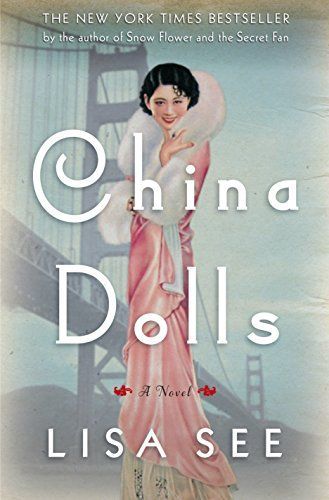
China Dolls
It's 1938 and the exclusive Oriental nightclub in San Francisco's Forbidden City is holding auditions for showgirls. In the dark, scandalous glamour of the club, three girls from very different backgrounds stumble into each other lives. All the girls have secrets. Grace, an American-born Chinese girl, has fled the Midwest and an abusive father. Helen is from a Chinese family which has deep roots in San Francisco's Chinatown. And, as both her friends know, Ruby is Japanese passing as Chinese. Then, in a heartbeat, everything changes. The Japanese attack Pearl Harbor and paranoia, suspicion, and a shocking act of betrayal, threaten to destroy their lives.
Reviews
jess@visceralreverie
Kwan Ann Tan@kwananntan
Jessica Smith@jayeless
Megan Gardner@mmgardner
Gigi V@barksandvino
Haleemah Sadiah@haleemahsadiah
Sierra@sisihope101
Kaycee@kaycee
Leah@leah_pope
Tracey O’Rourke@simiavus
Antonella Romani@tonyroma46
Jenny Hall@jenn16
Angelina Thomson@amrthomson
Jessi@jessireadsbooks
Emily Wu@bk_em